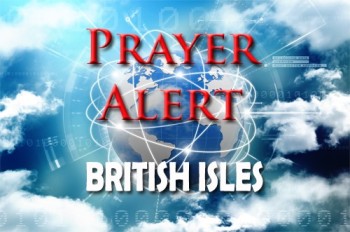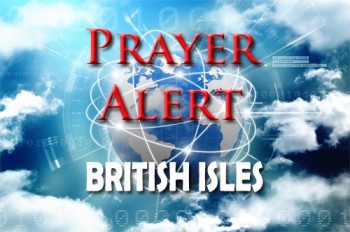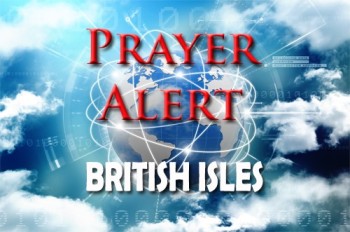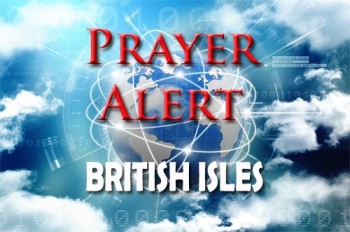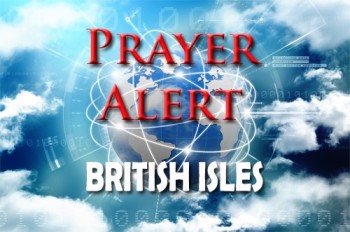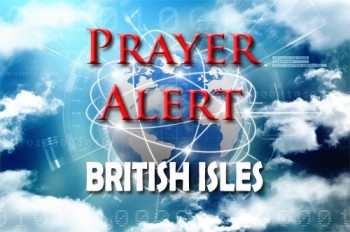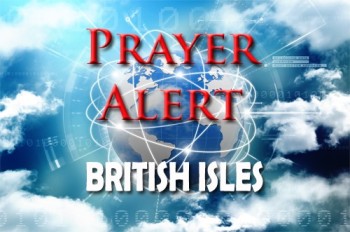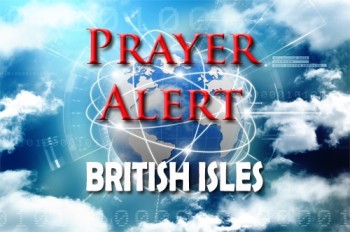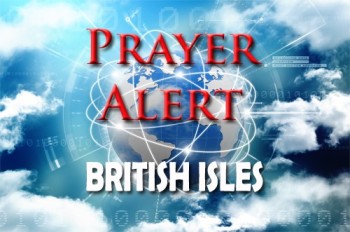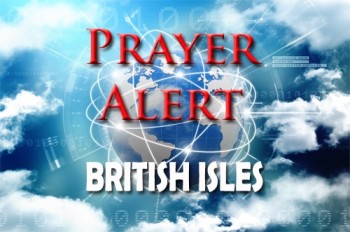Displaying items by tag: United Kingdom
Chinese mega-embassy approved by Government despite security concerns
The Government has approved plans for a large new Chinese embassy near the Tower of London, ending years of debate over security concerns. The site, purchased by China in 2018 for over £200 million, would become the largest Chinese embassy in Europe. Ministers say national security has been their foremost consideration, stressing that intelligence agencies were involved throughout the process and that extensive mitigation measures are in place. However, critics across the political spectrum have condemned the decision. Conservative, Liberal Democrat, and Reform UK figures argue the embassy’s size and location could increase the risk of espionage and intimidation, particularly toward dissidents living in the UK. MI5 has acknowledged that security risks cannot be entirely eliminated, though it judged the safeguards to be proportionate. Supporters of the decision say approving the embassy reflects pragmatic engagement with a major global power and helps maintain diplomatic dialogue on trade, security, and human rights. Opponents warn it sends the wrong signals about Britain’s willingness to stand firm on national security and democratic values.
House of Lords backs ban on social media for under-16s
Momentum is growing in parliament for a ban on under-16s using social media, after the House of Lords backed a key amendment to the Children’s Wellbeing and Schools Bill. The proposal would require social media platforms to implement highly effective age-verification systems within a year of the law passing. While the Government initially resisted an outright ban, pressure from opposition parties, bereaved parents, charities, and Labour backbenchers has softened its stance. Many peers cited evidence of harm to children’s mental health, wellbeing, and development, sharing personal testimonies and research on the risks of excessive screen use. With similar restrictions already introduced in Australia, ministers are now consulting on how a UK ban might work in practice. The amendment now returns to the House of Commons, where overturning it could prove politically difficult. Government statements suggest action is increasingly likely, with a focus on helping children develop healthier relationships via phones and social media, while balancing evidence, parental concerns, and expert advice. A ban in some form now appears almost inevitable.
Inflation rises for first time in five months - but one-off factors blamed
UK inflation has risen for the first time in five months, increasing to 3.4% in the year to December. The rise, though higher than expected, is widely attributed to temporary factors rather than a sustained upward trend. The Office for National Statistics said higher airfares over the Christmas and New Year period were a major contributor, alongside increased tobacco prices following a Budget tax rise. Food prices also edged up, notably for bread, cereals, and vegetables, adding pressure on household budgets. Despite the increase, analysts believe inflation is likely to fall again in the coming months. The Bank of England, which ended 2025 by cutting interest rates to 3.75%, is expected to proceed cautiously when it meets in February, with gradual cuts anticipated later in the year. The Government says reducing the cost of living remains a priority, while critics blame high taxes and borrowing for continued pressure on families. Compared with European neighbours, UK inflation remains relatively high, though forecasts suggest a decline is likely soon.
Government launches £15bn Warm Homes Plan
The Government has launched a £15 billion Warm Homes Plan aimed at expanding solar power, heat pumps, and other green technologies across households over the next five years. The scheme seeks to triple the number of homes with solar panels while increasing uptake of low-carbon heating. It includes a mix of grants and low or zero-interest loans, available regardless of household income. The Boiler Upgrade Scheme will be extended until 2029/30, offering grants of up to £7,500 for air-source heat pumps. An additional £600 million has been allocated to fully fund solar panels and battery storage for low-income households. It is estimated that combining solar, battery storage, and heat pumps could save an average household up to £1,300 a year. The plan is also expected to boost demand for skilled installers, creating opportunities for green-tech businesses and workforce training. Ministers say the programme supports decarbonisation, energy security, and cost-of-living relief, though experts stress the importance of improving insulation alongside new technologies.
MPs debate removal of immunity provision from new legislation
MPs are debating plans to remove the immunity provision from legislation addressing unresolved crimes from the Northern Ireland Troubles. The Government is seeking approval for an order to overturn elements of the previous Legacy Act, including a scheme that would have granted immunity from prosecution to individuals involved in Troubles-related offences in exchange for cooperation with a truth recovery body. That scheme was ruled unlawful and never implemented. Northern Ireland secretary Hilary Benn said the changes are necessary to restore trust among victims’ families and communities who strongly oppose immunity for those responsible for violence and murder. The order would also lift restrictions on bringing new civil claims, reinstating the right of families to seek justice through the courts. In response to concerns among veterans’ groups that this could expose former members of the armed forces to repeated or unfair legal action, the Government intends to introduce safeguards for veterans, including limits on reinvestigation, health protections, anonymity provisions, and alternative ways of giving evidence.
Incoming Archbishop defends £100m slavery reparations fund
The incoming Archbishop of Canterbury, Sarah Mullally, has defended the CofE’s £100 million slavery reparations fund amid growing political and internal opposition. Writing to MPs and peers calling for the plan to be scrapped, she said the Church must address its historic links to African chattel slavery with honesty, responsibility, and Christian integrity. The fund is intended to provide seed funding for community projects and enterprises serving those affected by the legacy of slavery. Critics, including several Conservative MPs, argue the money should instead support parish ministry, church buildings, and historic records, warning of legal and financial risks. Dame Sarah responded that the initiative does not reduce parish funding, noting that £1.6 billion has been committed to parishes over the next three years. However, polling suggests significant concern among churchgoers, with many saying parish ministry should take priority and warning they may redirect giving if the fund proceeds.
Chinese super embassy in London 'could spy on the whole of Europe'
Concerns are growing in the UK over plans for a vast new Chinese embassy in London, amid warnings it could become a major hub for espionage across Europe. Unredacted planning documents reveal a concealed underground chamber positioned close to fibre-optic cables carrying sensitive financial and internet data for the City of London and Canary Wharf. Security experts say the scale of the underground facilities raises serious questions about potential intelligence-gathering activities. The proposed embassy, near the Tower of London, would be China’s largest diplomatic outpost in Europe. MPs, former intelligence officials, and international partners have urged the Government to block the development, citing China’s designation as a hostile state in multiple security briefings. Despite assurances that national security concerns have been assessed, critics argue the risks remain unacceptable. The debate highlights the need to safeguard critical infrastructure, sovereignty, and democratic freedoms in an increasingly contested global environment.
‘Critical incidents’ at NHS hospitals as winter viruses surge
Six NHS hospital trusts across England have declared critical incidents as winter pressures intensify, driven by rising flu cases, norovirus, Covid, staff sickness, and delayed discharges. Nottingham University Hospitals and Sherwood Forest Hospitals and four others are now on that status, signalling that services are stretched beyond safe capacity. Emergency departments are experiencing unprecedented demand, with some seeing over five hundred patients a day. Hospitals report long corridor waits, cancelled non-urgent procedures, and extreme pressure on frontline staff. NHS leaders say festive gatherings, cold weather, and icy conditions have contributed to a 'bounce back' in winter viruses and related injuries, and flu admissions are rising again after a brief decline. Declaring a critical incident allows trusts to prioritise life-threatening cases, redeploy staff, and restrict visitors to limit infection spread. The NHS continues to urge the public to use alternatives such as NHS 111 and community pharmacies where possible, and to support timely patient discharges.
UK economy grew by 0.3% in November, beating forecasts
The UK economy recorded stronger-than-expected growth in November, expanding by 0.3% and exceeding forecasts of 0.1%. The rebound, after a contraction in October, was driven largely by renewed industrial output and growth in the services sector. A key contributor was the recovery of car production, particularly at Jaguar Land Rover, after a cyber-attack had halted manufacturing for a significant time. Services also benefited from increased activity around the November Budget, including accounting and tax consultancy. Economists welcomed the data but warned that underlying growth remains fragile and uneven, with construction output falling sharply due to adverse weather conditions. While business investment and government spending may support growth in the months ahead, analysts remain divided over whether November represents genuine momentum or merely a temporary rebound. The figures underscore the importance of stable leadership, responsible policy decisions, and long-term investment to sustain recovery amid ongoing cost-of-living pressures and global uncertainty.
Jenrick sacked by Tories, defects to Reform UK
Robert Jenrick’s political journey has taken another dramatic turn after his sacking from the Conservative shadow cabinet and his decision to align himself at once with Nigel Farage’s Reform UK party. Long known for courting controversy, Jenrick has steadily shifted from a centrist, pro-Cameron Remainer into a leading figure on the hard right of British politics. As a minister, he was embroiled in major rows over a planning decision involving a Tory donor and over actions taken during Covid lockdowns. More recently, he built his leadership campaign almost entirely around a tough stance on immigration, including leaving the European Convention on Human Rights. His rhetoric and admiration for Donald Trump have alarmed former allies and delighted critics on the right. Once seen as a rising moderate star, Jenrick now appears determined to reshape his future beyond the Conservative mainstream, signalling further turbulence in an already fractured political landscape.
